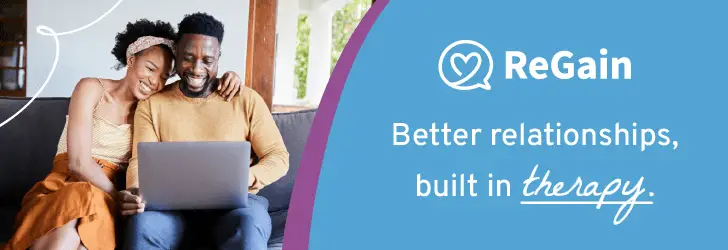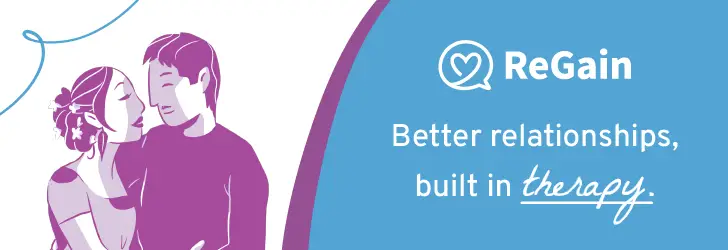As a BetterHelp affiliate, we receive compensation from BetterHelp if you purchase products or services through the links provided
Entering couples therapy can be a daunting experience for many, as it involves opening up about personal and intimate relationship issues with a professional. For couples seeking guidance and support in improving their relationship, couples therapy can be a productive and empowering journey.
When embarking on couples therapy, you must come prepared with questions to explore with your partner and therapist. These questions will help facilitate conversation and understanding, paving the way for growth and strengthening your bond. By doing so, couples can expect to gain valuable insights into their relationship dynamics, enabling them to develop lasting, positive changes.
Key Takeaways
- Couples therapy is a supportive process for couples seeking to improve their relationship.
- Asking pertinent questions in therapy sessions helps facilitate understanding and communication.
- Couples gain valuable insights and learn to implement positive changes through this exploration.

Basics of Couples Therapy
Couples Therapy vs. Marriage Counseling
Couples therapy and marriage counseling are often used interchangeably, but some differences exist. Couples therapy is a more general term and can apply to unmarried couples, whereas marriage counseling specifically focuses on issues within a marriage. Both aim to improve communication, resolve conflicts, and strengthen the relationship between partners. Regardless of the term used, the primary goal is to help couples address problems and develop coping strategies.
Types of Couples Therapy
Various types of couples therapy are available to address specific relationship issues. Some of the popular approaches include:
- Emotionally Focused Therapy (EFT) focuses on emotional bonding between partners and improving relationship attachment. EFT primarily works on addressing negative patterns of interaction and fostering emotional closeness.
- Imago Relationship Therapy: Imago therapy is based on the premise that partners unconsciously choose each other based on the needs they have from their childhood. This approach helps couples better understand their emotional triggers, develop empathy, and achieve personal growth.
- Gottman Method: This method, developed by Drs. John and Julie Gottman equip couples with research-based tools and techniques to improve communication, manage conflicts, and deepen their connection. The Gottman Method focuses on the “Four Horsemen” of relationship conflict: criticism, contempt, defensiveness, and stonewalling.
Couples need to discuss their specific needs with a qualified couples therapist to determine the best approach for their relationship counseling. Each type of therapy can be tailored to address the individual couple’s issues and help them achieve a healthier relationship.
Reasons for Seeking Couples Therapy
Communication Issues
One of the primary reasons couples seek therapy is to improve their communication. Often, partners struggle to express their needs, feelings, and concerns, leading to misunderstandings and frustrations. Couples therapy can provide tools and techniques to facilitate open and respectful conversations, helping both partners feel heard and understood.
Trust and Infidelity
Trust is fundamental to any relationship, and rebuilding it after infidelity can be challenging. Whether it’s due to a breach of trust from infidelity, deception, or other violations, couples therapy can help partners navigate these issues. Therapists assist couples in rebuilding trust and re-establishing a solid foundation for their relationship while also addressing the underlying issues that may have contributed to the breach of trust.
Intimacy and Connection
Maintaining intimacy and emotional connection is crucial for a healthy relationship. However, couples may find themselves drifting apart or experiencing diminishing physical or emotional intimacy over time. Couples therapy can help partners explore their vulnerability and rediscover their deep bond while suggesting ways to prioritize quality time and commitment to each other.
Family and Parenting Challenges
Family dynamics and parenting challenges can also strain a couple’s bond. Balancing the demands of work, family, and personal needs can put immense pressure on a relationship, leading to conflict. Couples therapy can help partners navigate these challenges by providing support, guidance, and strategies for effective parenting and promoting clear communication around values, ideas, and boundaries within the family.
Managing Conflict and Resentment
Conflict is inevitable in any relationship, but when not addressed properly, it can lead to resentment and negative patterns of interaction. Couples therapy can help partners develop healthier conflict-resolution skills and foster a more positive relationship environment. Therapists work with couples to identify the sources of conflict, such as jealousy, financial problems, and differences in relationship goals, and teach them how to constructively compromise and address these issues.
Questions to Explore in Couples Therapy
Past Experiences and Childhood
In couples therapy, exploring past experiences and childhood memories that may have shaped a person’s perspective on relationships is essential. This can involve discussing positive and negative experiences, such as loving family bonds and traumatic events. By understanding the emotional impact of these experiences, partners can develop compassion for each other’s perspectives and build a stronger foundation in their relationship.
Some questions to address may include:
- How did your parents’ relationship influence your views on love and commitment?
- Can you recall a childhood memory that has significantly impacted your feelings of closeness, intimacy, and trust in relationships?
- How have your past dating experiences shaped your expectations of your current partner?
Present Dynamics and Daily Life
Examining present dynamics and daily life helps couples identify their core values, discover new communication skills, and improve emotional intimacy. A relationship counselor may use the Gottman Method or Emotionally Focused Therapy to delve into these areas, fostering a better understanding of each partner’s communication style and love language.
Some questions to explore may include:
- What do you appreciate most about your everyday life with your partner?
- How do you navigate moments of disagreement or miscommunication?
- Which love language do you associate most with, and how can you further develop quality time, words of affirmation, acts of service, physical touch, and gift-giving in your relationship?
Future Aspirations and Goals
Discussing future aspirations and goals enables partners to evaluate their long-term compatibility and commitment as a unified couple. This discussion can encompass family planning, career progression, and blended families. A couple can develop a shared mission by addressing these issues head-on, strengthening their bond and overall relationship satisfaction.
Some questions to consider may include:
- What are your core values, and how do they align with your partner’s?
- In what ways do you imagine your life together evolving, and how do you plan to achieve these goals together?
- What steps can you take as a couple to create more opportunities for growth, closeness, and support in your relationship?
Uncovering insights and connections through these conversations can lead to a deeper understanding of oneself, one’s partner, and the relationship as a whole. Online couples therapy can effectively address these topics in a safe and supportive environment, fostering open communication and lasting results. By engaging in this process, partners can better understand their individual experiences and emotions, leading to a more fulfilling and purposeful partnership.

Couples Therapy Exercises and Worksheets
Building Communication Skills
Effective communication is essential for a healthy relationship. Couples therapy activities can help improve communication skills in a marriage or long-term relationship. Some of these activities include:
- Active listening exercises: Encourage partners to speak openly and listen without judgment or interruption. This practice helps develop empathy and understanding.
- “I” statements: Teach couples to express their feelings and thoughts from their perspective, avoiding blame or accusations. For example, “I feel unappreciated when…” instead of “You never appreciate what I do.”
- Communication worksheets: Provide structured exercises, such as those focused on identifying and overcoming communication barriers, which help couples to discuss their issues openly and productively. Check resources like Gottman Method workbooks or Emotionally Focused Therapy worksheets for inspiration.
Enhancing Emotional Intimacy
Emotional intimacy is the cornerstone of a successful relationship. Couples therapy questions and activities aimed at enhancing emotional intimacy include:
- Shared values exercise: Discuss each partner’s core values and find common ground, which can foster feelings of connection and strengthen the relationship.
- Love languages assessment: Identify and understand each other’s love languages to show appreciation and love in ways that resonate with the other person.
- Quality time activities: Plan and engage in meaningful activities together that promote bonding and deepen emotional intimacy, such as cooking together, engaging in a shared hobby, or taking a walk.
Developing Trust
Trust is vital in any relationship, and it can be built and maintained using therapy exercises and questions. A few trust-building exercises include:
- Trust-building activities: Engage in exercises that require vulnerability and reliance on one another, such as a trust fall or blindfolded obstacle course.
- Boundaries discussion: Establish clear boundaries and respect each other’s limits, ensuring comfortable and secure communication.
- Consistency practice: Demonstrate trustworthy behavior by fulfilling promises and being consistently open and honest with each other.
Resolving Conflict
Conflict resolution is crucial for relationship satisfaction. Some strategies for resolving conflicts healthily are:
- Compromise exercises: Explore ways to find a middle ground and acknowledge each other’s needs when disagreements occur.
- Identifying negative thoughts: Address unhelpful thoughts or maladaptive beliefs contributing to relationship dissatisfaction using cognitive techniques like CBT (Cognitive Behavioral Therapy) or psychodynamic couples therapy.
- Conflict resolution worksheets: Utilize worksheets designed to provide a structured format for discussing and resolving disputes, focusing on communication, empathic listening, and problem-solving jointly.

Evaluating the Effectiveness of Couples Therapy
Measuring Relationship Satisfaction
One critical factor in determining couples therapy’s success is measuring both partners’ relationship satisfaction. Relationship satisfaction can be assessed using questionnaires, self-reports, or discussions with a relationship counselor. Participants may rate their satisfaction in various aspects of their partnership, such as communication, intimacy, trust, and overall happiness. It is essential to track these assessments throughout the therapy process to monitor the progress and effectiveness of the sessions.
Assessing Areas of Improvement
In addition to measuring relationship satisfaction, it is crucial to identify specific areas in which the couple needs improvement. A skilled relationship counselor will help partners discover and address these areas during therapy sessions. Common areas of focus may include:
- Communication skills
- Conflict resolution
- Emotional support
- Intimacy and affection
- Trust and honesty
Throughout the therapy process, the couple and therapist will continuously assess these areas to gauge the effectiveness of the intervention and adjust the approach as needed.
Determining the Path Forward
Finally, a key aspect of evaluating the effectiveness of couples therapy is the establishment of clear relationship goals and a shared vision for the future. The relationship counselor will work with the couple to develop a roadmap for success, helping them to create actionable steps and strategies to achieve their desired outcomes.
Setting realistic expectations, maintaining the gains made during therapy, and continuing with ongoing maintenance sessions can all contribute to the long-term success of a couple’s therapy experience. By monitoring relationship satisfaction, focusing on improvement, and having a clear plan for the future, couples can confidently determine the overall effectiveness of the therapy process in their journey toward a happier, healthier partnership.
Seven Critical Questions
What are your expectations? How do you manage your life together?
In couples therapy, partners must discuss their expectations of one another. Understanding each other’s needs and desires helps to foster a healthy and fulfilling relationship. Both partners should openly discuss their expectations regarding various aspects of their relationship, including emotional support, financial contributions, and household responsibilities.
How do you communicate?
Effective communication is the bedrock of a successful relationship. During couples therapy, it’s essential to discuss each individual’s communication style, identify potential challenges, and explore ways to improve communication. Developing skills like active listening, empathy, and timely feedback can greatly enhance the quality of partner interactions.
What are your main conflicts?
Every couple faces conflicts in their relationship. Identifying and addressing these issues is critical for the couple’s growth and well-being. Discussing the key areas of conflict helps to pinpoint behavior patterns, understand the root causes, and develop appropriate coping strategies. It’s important to approach these conflicts without assigning blame, fostering an environment of understanding and resolution.
How do you handle disagreements?
Disagreements are a natural part of any relationship, but learning how to navigate them constructively is essential. In couples therapy, partners should discuss their approaches to resolving disagreements, noting any negative patterns or areas of concern. Identifying successful strategies for resolving disputes and establishing boundaries can help promote harmony in the relationship.
What are your relationship goals?
Long-term goals are vital for guiding the direction and progress of a relationship. Couples should discuss their aspirations for both their personal lives and their relationship, including career objectives, family planning, and lifestyle choices. Aligning these goals and clarifying any discrepancies can help the couple chart a course for their future together.
How do you express love? What is your love language?
Each person has unique ways of expressing and perceiving love. Understanding how each partner gives and receives love can significantly improve the emotional connection within a relationship. Couples should discuss their preferred love languages, such as words of affirmation, quality time, acts of service, physical touch, and gift-giving, to better understand and support one another’s emotional needs.
What are your core values? How do they align with your partner’s?
Establishing shared values is important for couples; discussing aspirations, family planning, and career progression can help partners define their principles while exploring compatibility as a unified unit.
- 3 Ways Wearing a Hat Can Help Lower Your Stress Levels - April 19, 2025
- Breaking the Silence: Why Men’s Mental Health Matters More Than Ever - April 15, 2025
- How to Transform a Home’s Patio Space into a Relaxing Space - March 23, 2025
This site contains affiliate links to products. We will receive a commission for purchases made through these links.





